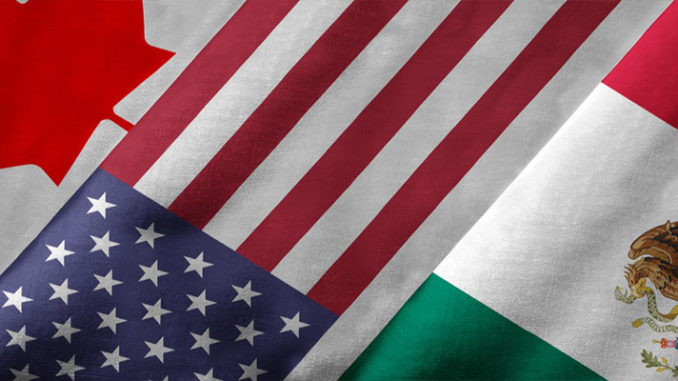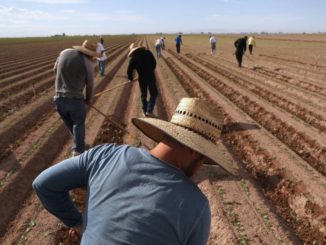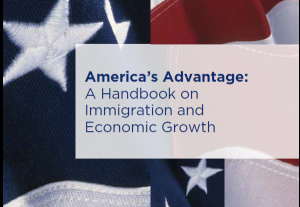
The economic future of North America depends to a large extent on the implementation and enforcement of the USMCA.
by Lila Abed and Jorge Armijo
The immigration crisis at the Mexico-US border and the challenges on trade will test the newly invigorated bilateral relationship. The moment offers a chance to cooperate on two pressing matters that affect, albeit for different reasons, the interests of both governments.
Immigration
For the Biden administration, the recent flux of migrants, particularly unaccompanied minors, has translated into a domestic political battle not only between Republicans and Democrats, but also within the Democratic party itself. With the midterm elections looming, Republicans will use the surge in migrants as a political weapon against their opponents to argue that their “open-border” policy poses a national security threat to the country. On the other hand, certain Democratic members, especially those that represent districts on the border, have asked President Biden to take more drastic and immediate measures to address the crisis.
In March alone, more than 170,000 people have tried to cross the border, the largest single-month total in over a decade. During his campaign, Biden promised a fair and humane immigration policy, one that aimed to dismantle the majority of the practices adopted by his predecessor. While the White House has pushed back on numerous Trump-era policies, Biden is facing the reality that he inherited a broken immigration system that will take time to rebuild. In response to the escalating crisis, the president has sent FEMA to support the government’s response, increased the amount of CBP agents, opened new detention centers, designated VP Kamala Harris to lead the strategy in the region, and has designated US $4 billion to Central America to address the underlying factors that motivate migrants to travel north: climate change, corruption, violent crime, the pandemic and poverty.
A recent Gallup poll revealed that Americans placed immigration as the third most important problem in the country, and one in six Republican voters ranked it as their top issue. The stakes are extremely high for Biden, it is a central issue of his agenda and his immigration policy may determine whether the democrats maintain control of Congress for the remainder of his administration.
In Mexico, the government is responding to an increasingly dire humanitarian crisis on both of its borders. The AMLO administration deployed almost 9,000 members of its National Guard to stem the flow of migrants and has agreed to ramp up cooperation measures with the United States. During his first press conference from the White House, Biden announced that Mexico was refusing to accept migrant families but stated that he was in negotiations with AMLO and that soon there would be changes. Shelters and detention centers in Mexico are overwhelmed by the amount of people that are being deported under Title 42 of the US Code, which justifies rapid expulsions as a health measure amid the pandemic. The Mexican government has also begun sending migrants back to their countries. For those that do stay in the country, they run the risk of falling prey to organized crime, extortion, human-trafficking, kidnapping and forced labor.
Trade
The economic future of North America depends to a large extent on the implementation and enforcement of the USMCA.
The opportunities that this agreement offers all signatory parties, especially Mexico and the United States, in the context of the Covid-19 are vast. It facilitates coordinated actions between economies to ensure the successful reactivation of activities of essential sectors, like automotive and electronics, after the disruption to regional supply chains. Thousands of jobs in both countries rely on a prosperous bilateral trade relationship and the region is quickly recovering the economic dynamism that existed before the pandemic hit last year.
The Biden administration’s stimulus plans have reactivated the US economy by injecting trillions of dollars, helping to position the North American region at the forefront of demand for goods globally. Consequently, these actions will translate into an essential component for the recovery of the Mexican economy. According to a WTO report, imports from the region will grow by 11.4% at an annual rate during 2021, which in turn will imply an increase in exports and a rebound in imports.
The strength and speed with which the US economy is recovering generates positive expectations for Mexico, especially when 90 percent of its exports are sent to the United States. A growth of 10 percent of these exports would represent an increase of 2.8% of México’s GDP. However, certain issues must be addressed in order to ensure a sustained and effective recovery. Mexico needs to quickly resolve certain non-compliance practices that have developed uncertainty and unpredictability for foreign investors and the business community as a whole.
The Foreign Trade Barriers Report 2021 published by the USTR highlights a series of measures adopted by the Mexican government in various sectors, from energy, telecommunications, to agriculture and pharmaceuticals, among others, that represent unnecessary barriers to trade and investment in Mexico. According to the report, these decisions could translate into additional costs for US companies, which could hamper further integration.
In her nomination hearing before the Senate, Ambassador Katherine Tai, the US Trade Representative, affirmed that a priority of the Biden administration will be to implement and enforce the terms of the USMCA to avoid that the agreement is distorted and to ensure that the right trade conditions continue to exist. The Mexican government should take these elements into consideration and make a conscious effort to achieve the correct implementation of the USMCA.
One thing remains clear: Mexico and the United States must adopt a common strategy to solve the immigration crisis and jointly advance towards the regional economic recovery.
.
Lila Abed is an expert in US-Mexico relations, with a MA at Georgetown University. She is a columnist at El Heraldo de México and a member of the COMEXI´s Young Professionals Program (PJCOMEXI). PJCOMEXI partners in several initiatives with The US-Mexico Foundation, a binational non-profit organization dedicated to fostering bilateral cooperation and improving the understanding between the United States and Mexico by activating key people in the relationship that once were dormant. Twitter: @lilaabed
Jorge Armijo is an expert on international and trade issues. He is the Executive Secretary of the COMEXI´s Young Professionals Program (PJCOMEXI) and the Founder Secretary of TradeTankMx, a trade think tank in Mexico City. Twitter: @jorgeoarmijo



